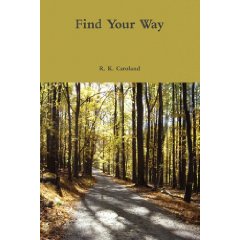 If you’ve studied the human brain as much as I have, you know exactly what is going on when you hit a patch of acute anxiety. You realize that the amygdala (fear center) of your brain has duct-taped the other, more rational parts of your head, like the prefrontal cortex, and it’s performing a Riverdance somewhere in the gray matter.
If you’ve studied the human brain as much as I have, you know exactly what is going on when you hit a patch of acute anxiety. You realize that the amygdala (fear center) of your brain has duct-taped the other, more rational parts of your head, like the prefrontal cortex, and it’s performing a Riverdance somewhere in the gray matter.
You do your very best at rescuing the higher lobes, and try with all your might to wrestle the amygdala to the ground, holding it in a half nelson until you can think straight again.
But this whole process actually makes the struggle worse. You try and try to apply logic and reason and locate the exact irrational fears that have you breathing shallowly, but the more you try to pinpoint them, the more frustrated you become. You can identify the weak links of your recovery—like not exercising for five days, eating like crap, and inconsistent sleep patterns—but this does little to alleviate the symptoms of anxiety you feel at the present.
Does any of this sound familiar?
This was yesterday’s primary activity: trying to outsmart my thoughts in order to regain peace of mind. And then I picked up Henri Nouwen’s book, “The Inner Voice of Love,” the only material I can really read when I’ve reached this point, and this is what he says:
The great challenge is living your wounds through instead of thinking them through. It is better to cry than to worry, better to feel your wounds deeply than to understand them, better to let them enter your silence than to talk about them. The choice you face constantly is whether you are taking your hurts to your head or to your heart. In your head you can analyze them, find their causes and consequences, and coin words to speak and write about them. But no final healing is likely to come from that source. You need to let your wounds go down into your heart. Then you can live them through and discover that they will not destroy you. Your heart is greater than your wounds.
Understanding your wounds can only be healing when that understanding is put at the service of your heart. Going to your heart with your wounds is not easy; it demands letting go of many questions. You want to know: “Why was I wounded? When? How? By whom?” You believe that the answers to these questions will bring relief. But at best they only offer you a little distance from your pain. You have to let go of the need to stay in control of your pain and trust in the healing power of your heart. There your hurts can find a safe place to be received, and once they have been received, they lose their power to inflict damage and become fruitful soil for new life.
You have to let go of the need to stay in control of your pain.
That, I think, was my problem and is my problem so much of the time. I am petrified of devolving to the pathetic place I was when I was hospitalized. So every time I hit a bump I panic, and want to think myself back to perfect shape as soon as humanly possible. However, that approach backfires. Both spiritually, as Nouwen explains. But also physiologically, as many studies have shown that, while in a state of severe rumination, trying to control the ruminations is actually going to further activate the amygdala—causing even more ruminations and anxiety.
It’s better to simply feel the pain and to allow yourself to cry, to scream at God or whoever you want (preferably not your husband or kids), and to sit for a second or two with the frustration.
I tried that yesterday, after I read Nouwen’s words. I closed the book and cried for fifteen minutes in total frustration. Sure enough, I did experience far less anxiety, even a touch of sanity, than had I tried to figure out why my neural circuits had just blown a fuse.
I am with Nouwen on this one. We need to trust more in the healing power of our hearts.

